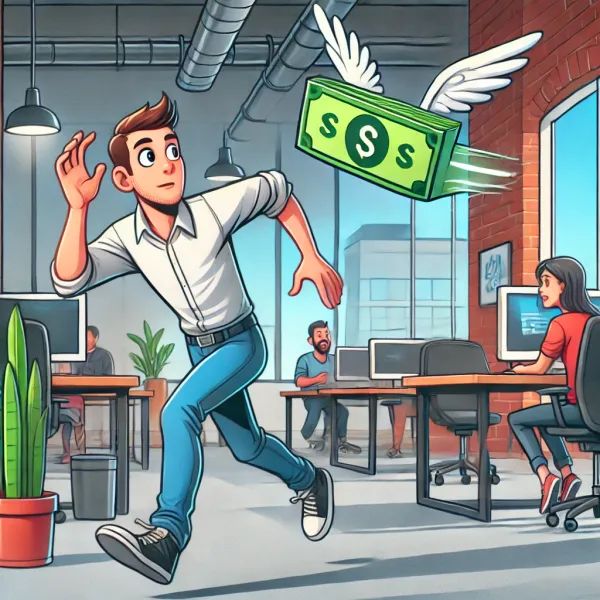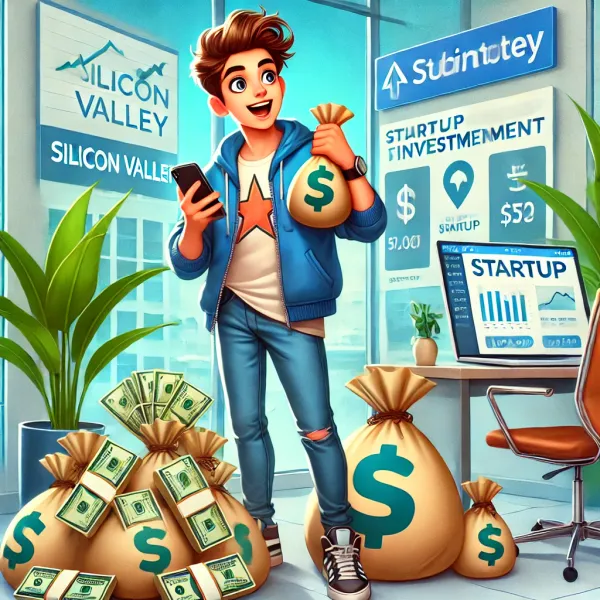You need to pay attention to the relationships between your investors
There are relationships among your investors that they probably won't tell you about, but matter deeply to your startup.

There are relationships among your investors that they probably won't tell you about, but matter deeply to your startup.
You already know that warm intros are still the name of the game if you want to get in front of a VC. This is despite lots of voices calling for an end to warm intros (which I agree with - they're economically inefficient for us all, since funding doesn't get to the best founders, just the best connected founders).
But have you considered how warm relationships between investors also affect your startup? Here are some relationship dynamics to consider.
Most VCs don't think a lot of most angel investors
Why many angel investors are a problem
Many angel investors, particularly if you are not in the Bay Area, can sound very sophisticated to newbie entrepreneurs when they anything but. They're often older successful business people who are well-connected locally. And they may have no idea what VCs will expect at the next round, and put you in a position that makes it hard or impossible to raise a proper VC round. This can look like:
- Taking too much of the company for a small investment (I've seen startups that would otherwise be VC-scale businesses, but an angel has written a $50,000 check for a majority of the company, and won't agree to a lower stake).
- Refusing to use a standardized instrument like a SAFE or (less common these days) a convertible note for financing.
- Insisting on a board seat, well, at all, but especially once professional investors are in play.
- Interacting with interested VCs in a way that makes your startup feel like just too much darn work.
- Introducing you to people who can't aren't VCs and can't write big enough checks to support a fast-growing startup (and therefore are wasting your time).
Which angel investors are (usually) not a problem
Eat while you're being served - you may need to take angel money to get started. Nearly everyone who raises VC does, so you're not alone. There are three types of non problematic angel investors:
- Startup/tech people who have made some money and are investing. They know the game, they aren't likely to cause problems and they may have relationships that help.
- Really rich people who know you, want you to succeed, and don't have any interest in getting involved in the business. I wish we all had rich uncles...
- People VCs want to cosy up to for other reasons. Senior execs at big companies that are LPs in similar venture funds, etc.
Is crowdfunding a good idea?
I want to say yes - I love the democratization of capital. But I gotta say no, if you'll need to continue to raise capital.
I mean, if you raise a small amount of crowdfunding and end up growing a gargantuan business, sure, you'll have all the options in the world, including VCs. But that's very unlikely. If you have a viable business that's not an unbelievable success with limited funding, you'll run into issues. The terms and conditions of crowdfunding investments may not match what VCs expect, making you uninvestable. And moreover, VCs are some of the snootiest people around - everything is about being in-network on the inside. Crowdfunding is...the opposite. Unappealing to them. (They are the ones who are wrong, in my opinion, but they are also the ones who control the cash...)
Is taking accelerator investment a good idea?
Most accelerators suck. They are a waste of time, with lots of underskilled corporate "mentors" running around who have no idea how anything works in the startup world. I used to be one... I know what I'm talking about.
If you get into Y Combinator, that's great. Take the money and the connections. Anyone else, be careful. You should never, ever pay a fee to an accelerator, including one charged against their investment dollars. And make sure their terms for the investment are no worse than Y Combinator's offer, which is currently $125K for 7% of your company (with some follow on after that).
While accelerators can be useful for some kinds of connections, read this article on what went wrong at Techstars or this one on the bankruptcy at Newchip to better understand some of the dynamics.
Your ability to raise your next round depends on your performance... and the relationships your investors have with investors who could fund your next round
This is why getting investment from a well-connected Silicon Valley VC can make all the difference. If you're out of the box successful, you'll be fine almost no matter who your investors are. But most startups have rounds where they are on the bubble, and that's when the fact that your investors were partying in Vail last weekend with their later-stage friends makes all the difference.
Unfortunately, if you have choices, you should also think carefully before you accept a lead investor who focuses on underrepresented groups, if you belong to one. Often they have the same issues you do getting into these networks, and you'll want to make sure they have later-stage friends with deep pockets. Alternatively, have a co-lead or other investors around the table who are better connected.
Some of your investors are invested in each other
This one is really trippy. Larger funds are raising so much money these days that it's hard to deploy the capital fast enough. One thing they do is invest in other funds as LPs. Sometimes they invest in earlier stage funds, so they get information as LPs about the performance of companies the fund is invested in. Other times they are investing in emerging GPs - new fund leads they are cultivating to be the next generation of their network.
They may not disclose these relationships to you, and may not even tell you if you ask. In general, though, assume there is more collaboration among investors than you are aware of.
In conclusion
Investors operate in a world where they are intensely connected to each other and highly competitive. They spend their days being begged for money, and they will say no 99.5% of the time. There are almost no checks on bad investor behavior because entrepreneurs don't want to be blackballed by the network.
They're not looking out for you.
Look out for yourself.
I'm not your lawyer, your therapist, your advisor, or your accountant. We're just internet friends, and these are just my experiences and personal opinions. Consult professionals for advice before you make any sudden moves in your startup.
You will see the occasional affiliate link. I do earn a commission if you buy the products I recommend. I appreciate you buying through the links if you're going to buy. This is a labor of love for my fellow cofounders, and I do love receiving a few coins to pay hosting costs if you like my work.




